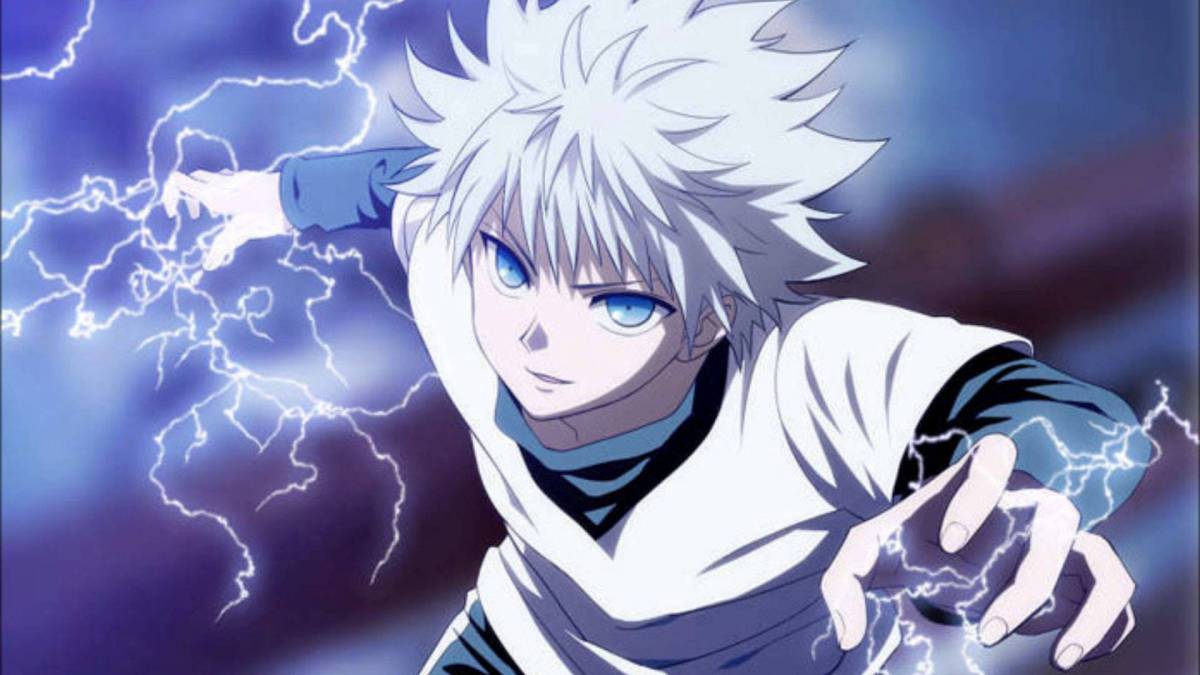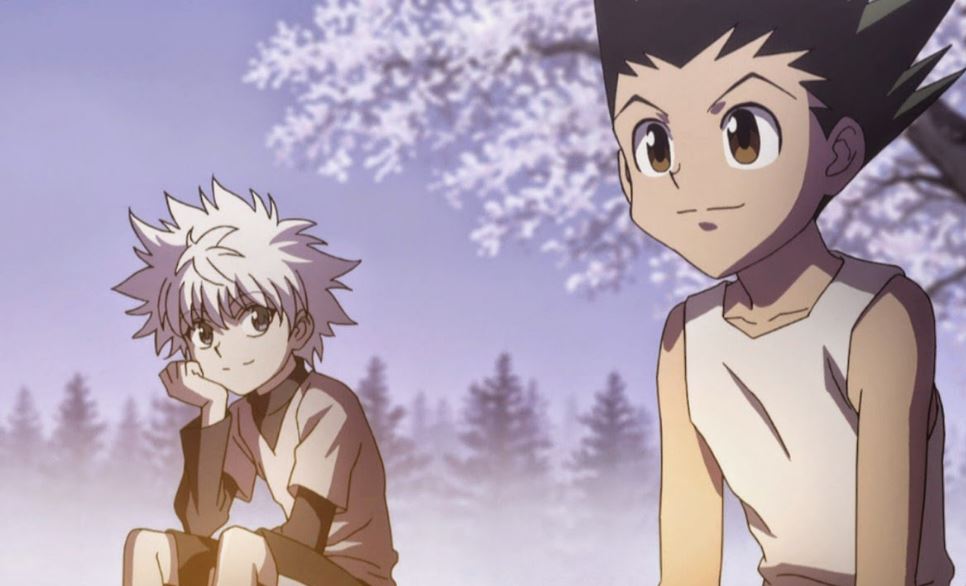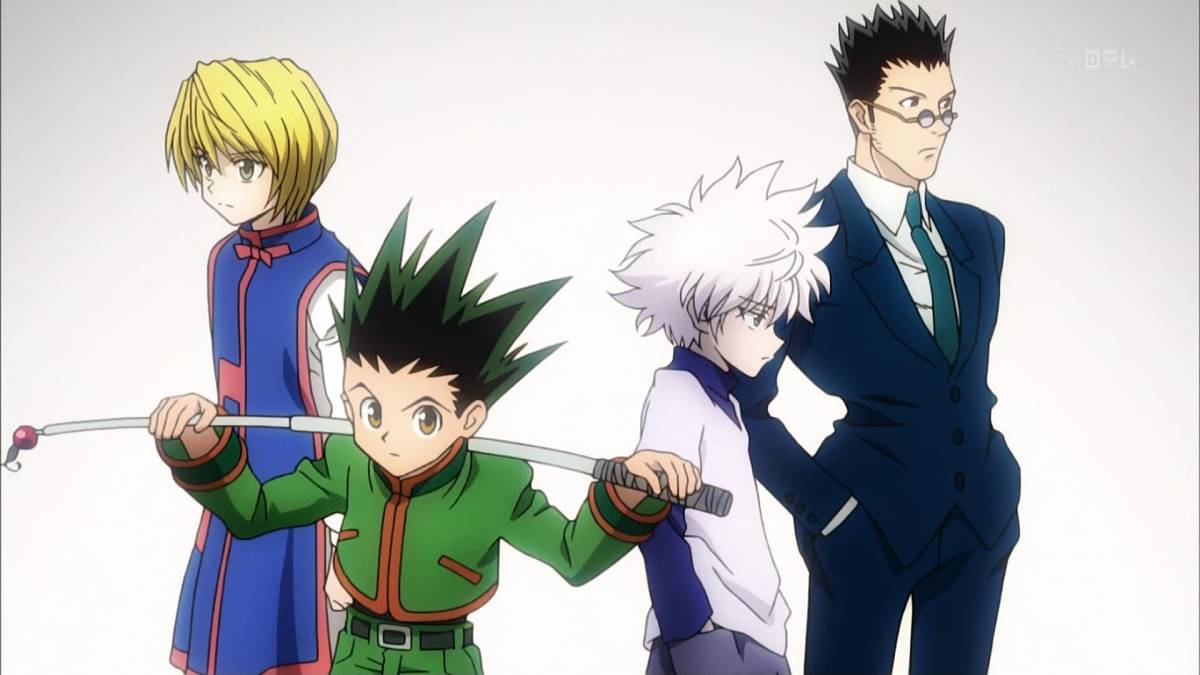Very few animes have the potential to be great. Some have captivating stories, others have top of the line animation and some are utter shit from beginning to end, but only a small handful excel in every area. Hunter X Hunter is one of those rare shows that effortlessly excels on all fronts. The story, animation, soundtrack, voice acting, and characters have all been masterfully handled. HxH is consistently brilliant, interweaving intricate storylines and featuring action scenes that can go toe-to-toe with the best in the genre. It is nothing short of an incredible achievement. An achievement that, I believe, is enough to make it the greatest anime of all time.
The programme was originally created as a manga by the legendary Yoshihiro Togashi during the mid 90s and whose previous work is another programme that is considered a classic, Yu Yu Hakusho. Togashi has the unique ability to make complex, interesting characters – good and bad – within a shonen without having to rely on obvious tropes, canon episodes or throwaway scenes in order to develop these characters.
The programme follows a core group of relatable characters: Gon, Killua, Leorio and Kurapika. The first couple of episodes focus on Gon who has embarked on a long and perilous journey to become a hunter. On the way, he meets Kurapika, Leorio and Killua who become his important friends and pivotal in many of the later stories. There are seven narrative arcs and each of them are strikingly different from one another: a battle royale style fight to the death; a quickly evolving colony of ants who threaten humanity; a terrifyingly evil crime organisation who take on the mafia; a videogame world where players have to complete challenges and fight other competitors in order to collect cards; and two, smaller ‘training’ arcs that function as a way to transition from one major story to the next. The variety between each of these major stories is commendable and it is to Togashi’s credit that he could pull off having different narrative arcs that borrow heavily from other genres. At some points it is an adventure story, on other occasions it is a typical action shonen, and one arc even effectively fashions itself as a gloomy, crime-thriller.

Even though each of these arcs have their owns strengths, the Yorknew City and Chimera Ant arcs stand head and shoulders above the rest. The former takes the form of dark and foreboding, noir crime-thriller where a group of ruthless mercenaries infiltrate underground auctions. The latter focuses on a carnivorous colony of ants that become stronger by eating sentient beings and quickly become powerful enough that they threaten humanity.
Both arcs highlight how HxH can create complicated story involving multiple characters without ever becoming convoluted or uninteresting whilst providing enough screen time for both the ‘good’ and ‘bad’ guys, but these arcs also highlights how Togashi can build up suspense prior to big battles through foreshadowing and having handful of intricate stories come to a head at the same time. For example, in the Yorknew arc Kurapika, who had been shown to have an unbridled hatred towards the people murdered his family, tracks this group down and slowly puts a plan into action that will allow him to take them out.
I loved that the main characters in HxH were rarely the most powerful or, for that matter, the most relevant. Often, it isn’t their strength, but their ability to out think their opponents that leads to their victory and it is rarely clear who will be victorious, creating endless possibilities for how a battle will end. One of my biggest qualms with most programmes in the shonen genre (fighting animes) is how it is usually obvious how a fight will end.
Gon and Killua function as a way to bring light to otherwise dark storylines. They can be funny, adorable, and capable of evoking strong emotions in the viewer, but, more importantly, their childlike innocence and playfulness contrasts with the gravitas of the situations which surround them. When shit goes down, they can often be found having a petty quarrel or playing rock paper scissors. They argue, have fun, and come up with unorthodox solutions to problems. Their whimsy provides a needed dichotomy as Hunter X Hunter has a tendency to evoke melancholy in almost every episode.
However, beneath their happy and friendly demeanour, lies deeply entrenched inner turmoil. Killua, for example, becomes emotionally dependent on Gon, using their friendship as a way to escape his previous life as an assassin and forget about the cruel torture he endured as a child. Their friendship later comes to a head when Killua realises that his friend has become selfishly transfixed on one of his own desires and ignored the pain it was causing him.

Togashi’s inherent ability to take intricate emotional issues and run with them in a way that is not only interesting but relevant to the plot is a hard thing to achieve, especially in an action focused genre such as shonen. Occasionally, I found myself siding with the ‘bad guys’ or disagreeing with one of the main characters choices, reflecting how everyone is inherently flawed, incapable of being perfect.
It isn’t just the story and characters that make Hunter X Hunter great, though, as it also has exceptional animation and a kicking soundtrack. The 2011 version of the series, unlike the 1999 one, went all out to create an anime that delivered on all fronts. The original was flat and lifeless whilst the remake was charming and compelling. The reason why I feel the latter succeeded where the original failed is due to the high quality animation and the orchestral soundtrack that brought the characters and their stories to life.
The visuals are crisp and vibrant and some of the later action scenes are a spectacle to behold. Even small, easily overlookable details such as the way a character smiles, stands, moves or fights have all been carefully considered. One character may have a tendency to arch their back, another may have relaxed posture, or the cool character could have a swagger in the way they stand and move. Madhouse, like their work on numerous other animes and films, have produced a rich and extravagant masterpiece that enables fight scenes to come to life through the use of detailed and fluid animation. The innocent and colourful artstyle works especially well during the Ant Arc and Yorknew City as these dark stories juxtapose with bright and colourful appearance of the characters in HxH. Even more astoundingly the consistently great animation manages to reach another level during the more important fight scenes.
The soundtrack Is no slouch either, adding necessary ambience during quieter moments or enhancing the impact of emotionally charged scenes. The World of Adventure and Hisoka Theme are two of my favourites. The former reaches dizzying heights when it soars, switching between strings and winds to encapsulate the excitement of embarking on an adventure, as well as steadily becoming louder and more emphatic until it reaches a final, glorious crescendo. The latter takes on flamenco and uses clapping and classical Spanish guitar to great effect, hinting that Hisoka is wild, passionate and unpredictable. Although, there are numerous tracks that deserve recognition. The best ones are usually the downbeat tracks that can evoke strong emotions without becoming cloyingly sentimental. Yoshihisa Hirano, the composer, uses a wide range of instruments from electric guitars, acoustic, string and wind instruments, percussion, drums, all effectively, creating a whimsical spectacle that fits the programme perfectly.
It is easy to love the 2011 reboot of HxH. Everything about it is polished, detailed, and oozing style. Even though I loved the 1999 version, I did feel the artstyle, music and pacing often left a lot to be desired. That isn’t to suggest that the original doesn’t have its own merits, but it lacked the care or attention for it ever to ascend to greatness.
Very rarely are long running animes enjoyable from start to finish as there are usually a smattering of poorly executed moments that can diminish from the experience. Hunter X Hunter, however, is almost faultless, reaching an echelon that very few animes have ever achieved. I even enjoyed the slow opening and the methodical, detailed approach to combat. Much like Togashi’s previous work, Yu Yu Hakusho, HxH is an exceptional programme. An anime that I believe not only reaches the level of Full Metal Alchemist, Neon Genesis Evangelion, or other great works within the anime genre, but stands above them all.
Some of the coverage you find on Cultured Vultures contains affiliate links, which provide us with small commissions based on purchases made from visiting our site.

